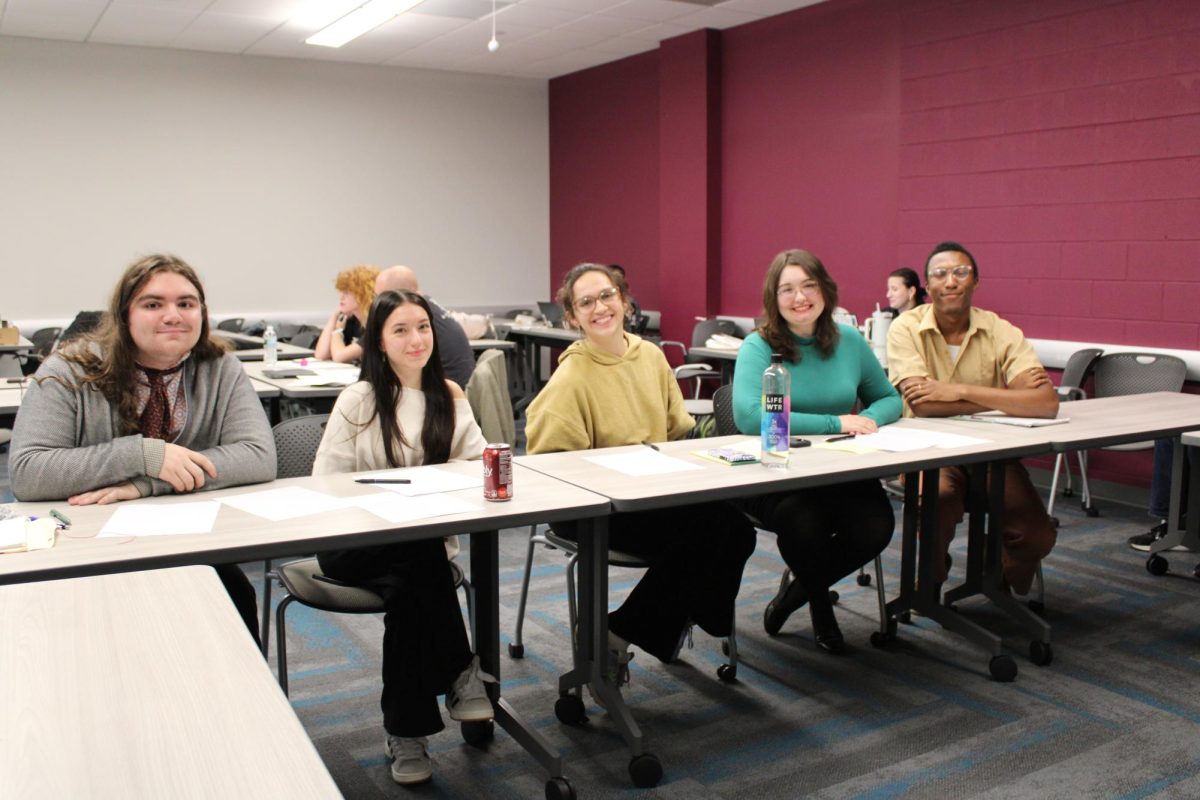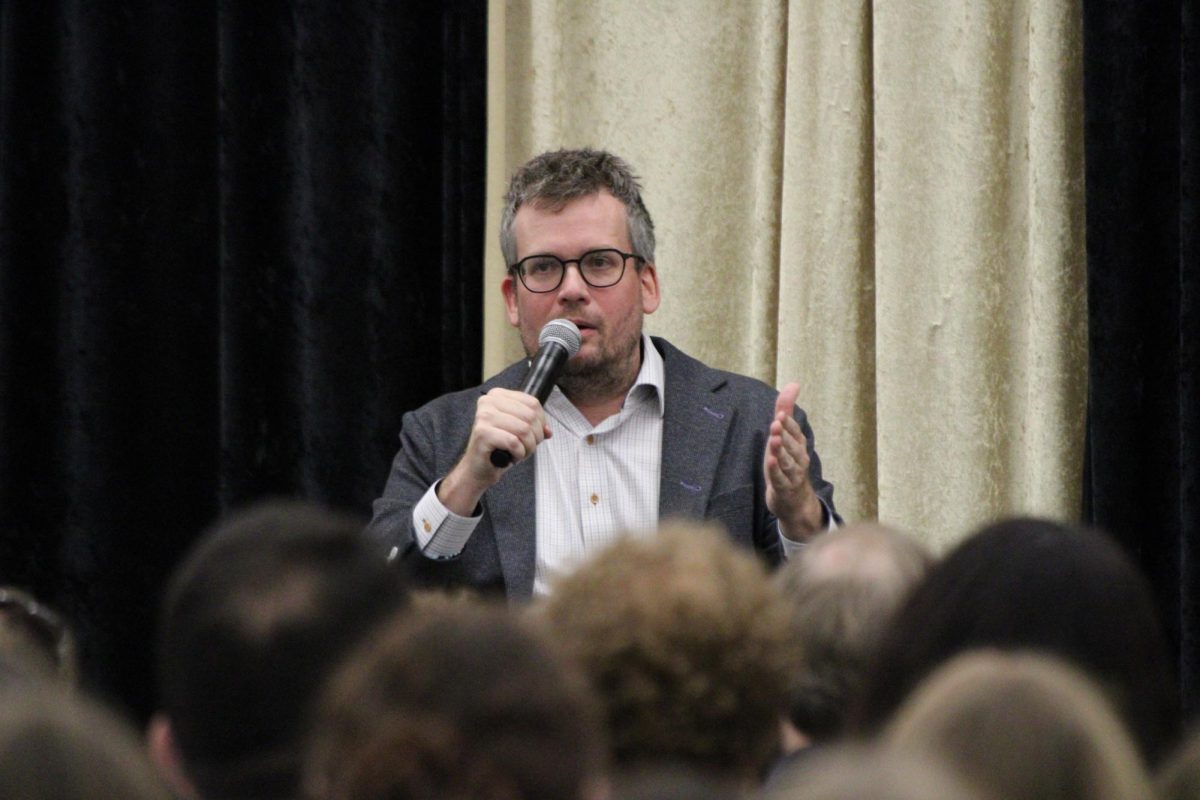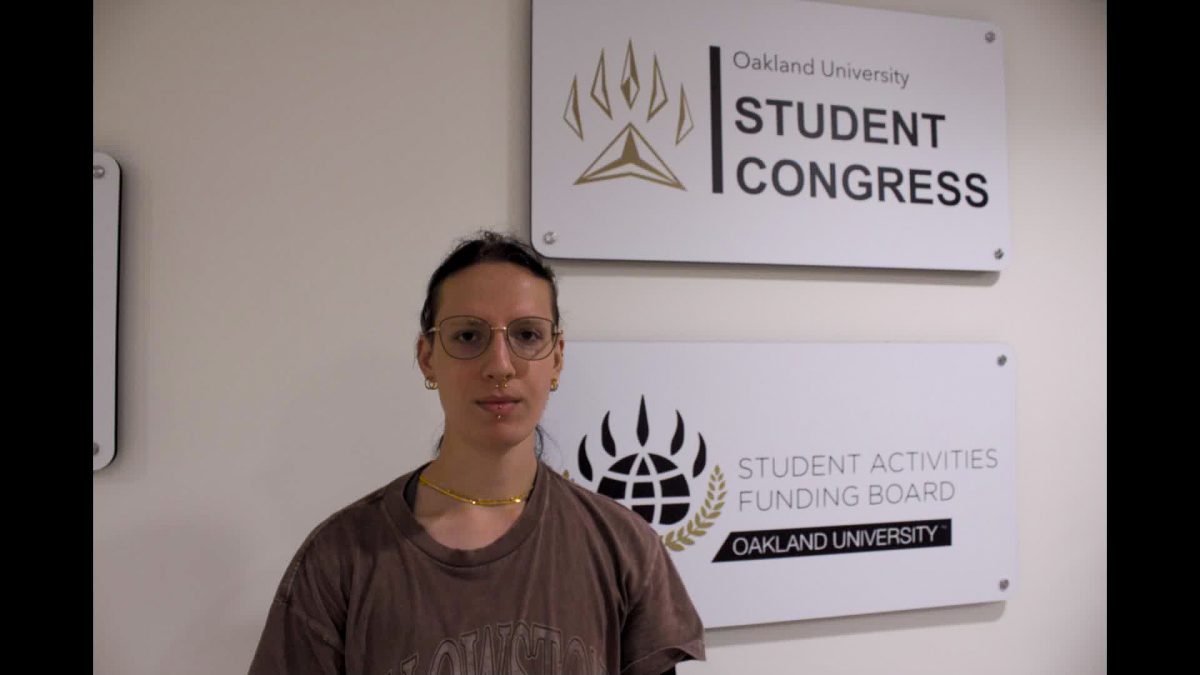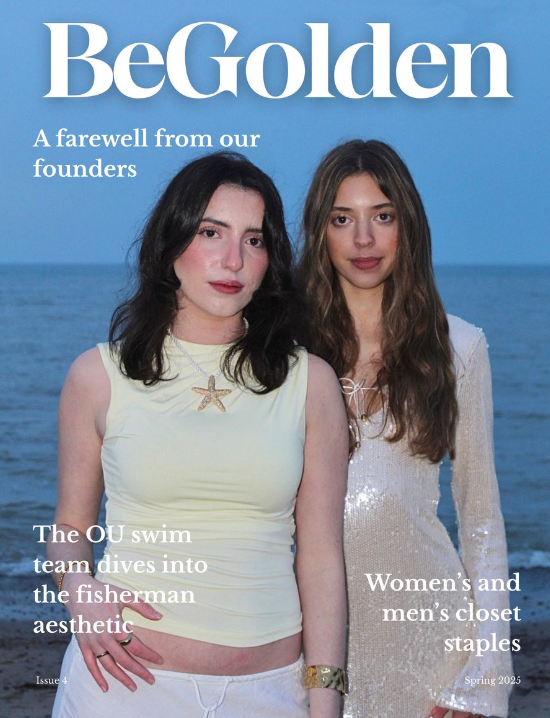On Nov. 6, the Oakland University Ethics Bowl had a virtual practice competition with the Utah State Ethics Bowl in preparation for the Central States Regional competition.
“Ethics Bowl is essentially a club/competition where individuals debate ethical issues and topics,” Payton Bucki, assistant coach, said. “Today, we had our mock bowl where our team went against Utah State University, and we had a little scrimmage with them.”
For first-time attendees, it almost looks magical. Both teams of four to six participants get an ethical issue and have two minutes to put together an argument to present for ten minutes. Once the clock rings, students conjure philosophical frameworks, transition seamlessly from one participant to the next and connect specific cases with legal outcomes, social trends and hypothetical scenarios.
“We meet twice a week for two hours each day, we usually start in August when we get these ethical cases and we start off by reviewing the cases and just discussing them,” Bucki said. “We start discussing what the cases are about, what we think the main issue of the case is, and then discussing our team’s position on the issue.”
Once clarified that the teams have had months to draft their presentation, it makes sense that they can prepare them without talking to each other, armed just with a pencil and paper. During their weekly meetings, participants engage in research and discussions to put together logical and cogent arguments that are to be scored by a panel.
“Something that is really beneficial about these discussions is that you’re coming in with people that have taken different perspectives on the case, and all have different ideas,” Bucki said. “So, we are going to end up with some disagreements, and there’s a lot of friendly arguing in Ethics Bowl, but that’s the beauty of it.”
Being a participant for two years and now the graduate assistant, Bucki attested to the challenges and joys of preparing and memorizing 10 presentations for Ethics Bowl.
“The really hard thing with Ethics Bowl is that you can’t take notes in, so everything that you prepare you have to memorize. So, we have 10 full presentations that are in our heads,” Bucki said. “When I was on the team last year, we won first place at that Central States Regional. So, we were there for two days, competing with other teams from across the region.”
Philosophy Professor, Lisa Campbell, explained the merit and joy of the Ethics Bowl beyond the winning of awards.
“Professors, teachers, they love to see what they teach stick and then get applied so that’s what I get to see them do,” Campbell said. “It’s not like a lecture course where maybe they take a test and you see it, but I actually see them put it into practice. And so that’s very rewarding to people who teach.”
This year is the first time in recent years that the Ethics Bowl only has one team, due to a smaller turnout for tryouts, Campbell explains.
“We’d really like to ramp up recruitment this year and get back to two teams — it makes it a little easier to practice,” Campbell said. “We’re open to all majors, any undergraduate student and that really helps us. The more diverse we can get the better, it gives us more depth.”
The team prepares to go to Marian University, Indiana on Nov. 16. With a recent victory under their belt, pursuing first place is also a way to honor the faculty that have taught and supported them throughout their careers, Bucki explained.
“We did have another ethics school coach last year, his name was Mark Rigstad and he is a professor here, and unfortunately, he passed away last year,” Bucki said. “What was really special about last year’s Central States Regional was that we won that regional, and that was his last competition with us, so we were so proud to give that win to him and then go to nationals that spring and really just honor his memory.”







